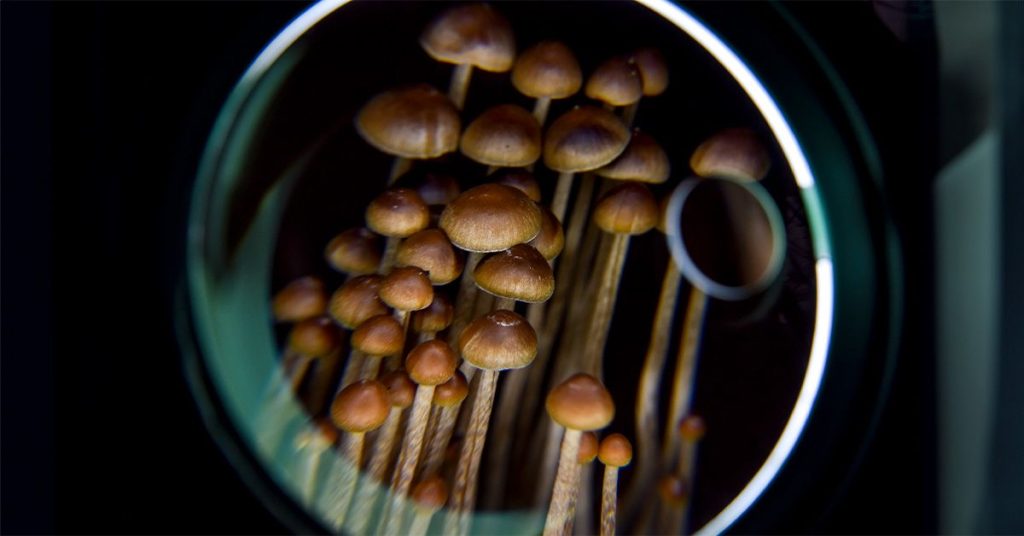Adults worldwide are living with depression at a rate of 5%, and one common treatment for this mental health condition is selective serotonin reuptake inhibitors (SSRIs). However, SSRIs come with potential side effects such as nervousness, headache, and loss of libido. A study conducted by researchers from Imperial College London found that psilocybin, a psychedelic compound found in certain types of mushrooms, provides similar improvement of depression symptoms as SSRIs. Participants in the study also reported better social functioning and psychological connectedness after 6 months.
The study recruited 59 adults with moderate-to-severe depression, with 30 participants receiving two doses of psilocybin and 29 following a 6-week course of the SSRI escitalopram. Both groups showed significant improvement in their depression symptoms, even up to the 6-month follow-up. Psilocybin was found to disrupt persistent negative thinking patterns associated with depression. Participants in the psilocybin group also reported advancements in social functioning and psychological connectedness. These findings suggest that psilocybin therapy may be a holistic treatment option for depression, addressing symptoms of depression as well as overall well-being.
The research team noted that remission rates were higher for participants receiving psilocybin compared to those taking escitalopram, despite similar mean scores for depression reduction. Psilocybin works differently from SSRIs, as it does not suppress emotions. The study also showed promising results for the treatment of depression using psilocybin, with participants experiencing improved well-being outcomes. This alternative treatment option may offer advantages over traditional antidepressants, which do not work for everyone and can have side effects.
While psilocybin has not been approved for depression treatment by regulatory bodies, further research is needed to complete phase 3 trials and evaluate potential risks. Researchers should continue to explore alternative treatments to standard SSRIs to better understand the mechanisms of depression. It is important to consider the accessibility of treatments like psychedelics and to explore ways to achieve similar benefits without the use of drugs. Larger studies are necessary to study the risks and benefits of psilocybin therapy under clinical conditions.
Long-term follow-up studies on psilocybin and escitalopram treatments are essential to understand the durability of their effects. Beyond measuring symptom severity, researchers should consider outcome measures related to meaning, connectedness, and social functioning to evaluate the overall well-being of individuals with mental health conditions. More diverse primary outcomes should be included in assessing the efficacy and long-term benefits of mental health treatments. This study highlights the potential of psilocybin therapy as a holistic treatment option for depression, with promising results in improving symptoms and overall quality of life.


